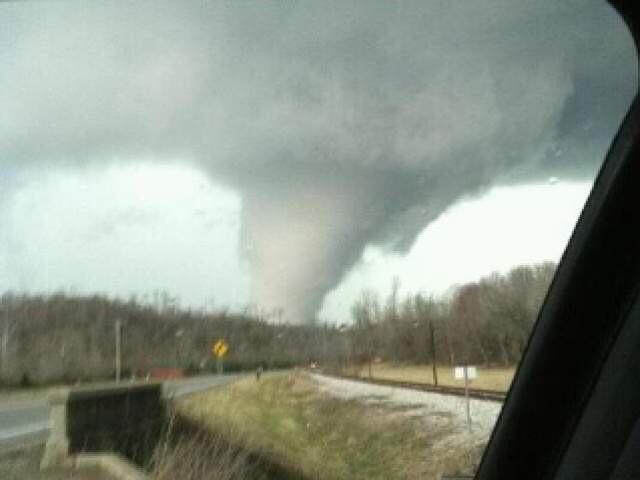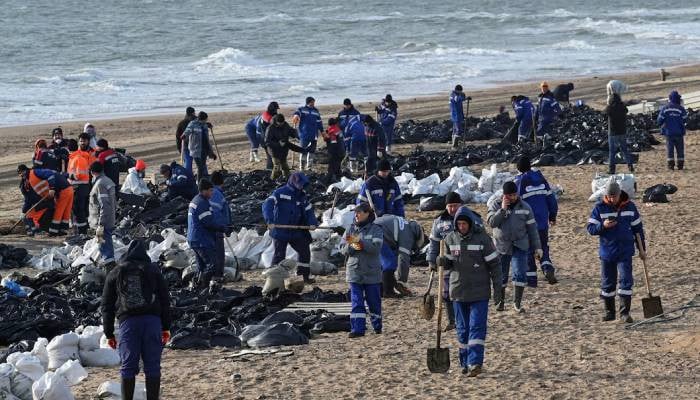2025: Louisville Battered By Snow, Tornadoes, And Unprecedented Flooding

Table of Contents
The Unprecedented Snowstorm of 2025
Record-Breaking Snowfall and its Immediate Impact
The winter of 2025 began innocently enough, but by late January, a massive low-pressure system stalled over the Ohio Valley, unleashing an unprecedented blizzard upon Louisville. Over three feet of snow accumulated in just 72 hours, a record-breaking snowfall that paralyzed the city. The immediate consequences were catastrophic.
- Widespread power outages: Thousands of homes and businesses were plunged into darkness, leaving many without heat in the frigid temperatures.
- Complete shutdown of Louisville International Airport: Flights were grounded, stranding travelers and disrupting air travel throughout the region.
- Numerous traffic accidents and injuries: Hazardous road conditions led to countless accidents, causing injuries and significant traffic gridlock.
- Significant disruption to essential services: Healthcare facilities struggled to operate, and emergency response times were dramatically increased due to impassable roads. The snowstorm created a perfect storm of challenges for emergency management teams.
Long-Term Effects of the Snowstorm
The economic fallout from the record-breaking snowstorm was immense. Businesses suffered millions of dollars in lost revenue due to closures and supply chain disruptions. The damage to infrastructure, including roads, power lines, and water pipes, further strained the city's budget.
- Millions of dollars in infrastructure damage: Repairing the damage to roads, bridges, and utility systems required substantial investment, placing a heavy burden on taxpayers.
- Increased insurance premiums: Homeowners and businesses faced significantly higher insurance premiums in the aftermath of the storm, adding to the long-term financial burden.
- Long-term economic recovery challenges: The recovery process took months, with some businesses failing to recover entirely. The city's economy faced significant long-term challenges.
Devastating Tornadoes Strike Louisville
The Tornado Outbreak and its Path of Destruction
Just as Louisville began to recover from the snowstorm, a series of violent tornadoes ripped through the city in early spring. This unexpected tornado outbreak resulted in multiple EF3 and EF4 tornadoes touching down in various parts of the city.
- Multiple EF3 and EF4 tornadoes: The sheer number and intensity of the tornadoes resulted in widespread devastation across a large area.
- Widespread building damage and destruction of homes: Entire neighborhoods were left in ruins, with countless homes destroyed and many more severely damaged.
- Significant loss of life and injuries: The tornadoes tragically resulted in a significant loss of life and a large number of serious injuries.
Aftermath and Recovery Efforts
The aftermath of the tornado outbreak saw a massive mobilization of emergency responders and volunteers. The community rallied together to provide support to those affected, demonstrating remarkable resilience in the face of immense tragedy.
- Large-scale mobilization of emergency responders and volunteers: The coordinated efforts of emergency services, the National Guard, and countless volunteers were crucial in rescue and relief operations.
- Establishment of temporary shelters and aid distribution centers: The city quickly established temporary shelters and aid distribution centers to provide housing, food, and essential supplies to those displaced by the tornadoes.
- Long-term rebuilding efforts supported by federal and state aid: The long road to recovery involved substantial rebuilding efforts, supported by significant federal and state financial assistance.
Unprecedented Flooding Engulfs Louisville
The Cause and Extent of the Flooding
Later that year, heavy, persistent rainfall overwhelmed Louisville's drainage systems, resulting in unprecedented flooding. The already-damaged infrastructure from the previous disasters was ill-equipped to handle the deluge.
- Record-breaking rainfall exceeding historical levels: The sheer volume of rainfall exceeded all historical records for the region, creating a catastrophic flooding event.
- Widespread flooding across various neighborhoods and low-lying areas: Many neighborhoods found themselves submerged, with significant damage to residential and commercial properties.
- Significant damage to residential and commercial properties: Flooding caused extensive damage to homes and businesses, forcing many residents to evacuate and face substantial financial losses.
The Impact and Lessons Learned
The flooding exposed critical flaws in Louisville's infrastructure and highlighted the urgent need for improved flood mitigation and emergency preparedness. The environmental impact was significant, with pollution and contamination of waterways.
- Failure of existing drainage infrastructure to handle the extreme rainfall: The city's aging drainage system proved inadequate, unable to cope with the volume of water.
- Need for improved flood warning systems and evacuation plans: The events highlighted the need for more effective warning systems and better-coordinated evacuation plans.
- Increased investment in resilient infrastructure: The disasters underscored the importance of investing in infrastructure designed to withstand extreme weather events.
Conclusion
The combined impact of the unprecedented snowstorm, devastating tornadoes, and catastrophic flooding in 2025 left Louisville significantly scarred. The city faced immense challenges in terms of infrastructure repair, economic recovery, and community rebuilding. However, the events also highlighted the importance of robust disaster preparedness, resilient infrastructure development, and strong community support. Understanding the lessons learned from Louisville's 2025 experience is crucial for other cities facing the increasing threat of extreme weather events. Preparing for future occurrences of Louisville's 2025-style extreme weather is not just prudent; it's essential for ensuring the safety and well-being of communities everywhere. Let's learn from Louisville's ordeal and build more resilient cities to withstand the impacts of extreme weather events. Investing in resilient infrastructure and proactive disaster preparedness is no longer a luxury; it's a necessity.

Featured Posts
-
 Our Yorkshire Farm Channel 4 Announcement Sparks Further Complaints Against Amanda Owen
Apr 30, 2025
Our Yorkshire Farm Channel 4 Announcement Sparks Further Complaints Against Amanda Owen
Apr 30, 2025 -
 Cruise Packing Mistakes What To Leave At Home
Apr 30, 2025
Cruise Packing Mistakes What To Leave At Home
Apr 30, 2025 -
 T Mobile Penalized 16 Million For Repeated Data Breaches
Apr 30, 2025
T Mobile Penalized 16 Million For Repeated Data Breaches
Apr 30, 2025 -
 62 Miles Of Black Sea Coastline Closed Due To Russian Oil Spill
Apr 30, 2025
62 Miles Of Black Sea Coastline Closed Due To Russian Oil Spill
Apr 30, 2025 -
 Adonis Smith Trial Witness Recounts 2019 Fatal Shooting
Apr 30, 2025
Adonis Smith Trial Witness Recounts 2019 Fatal Shooting
Apr 30, 2025
